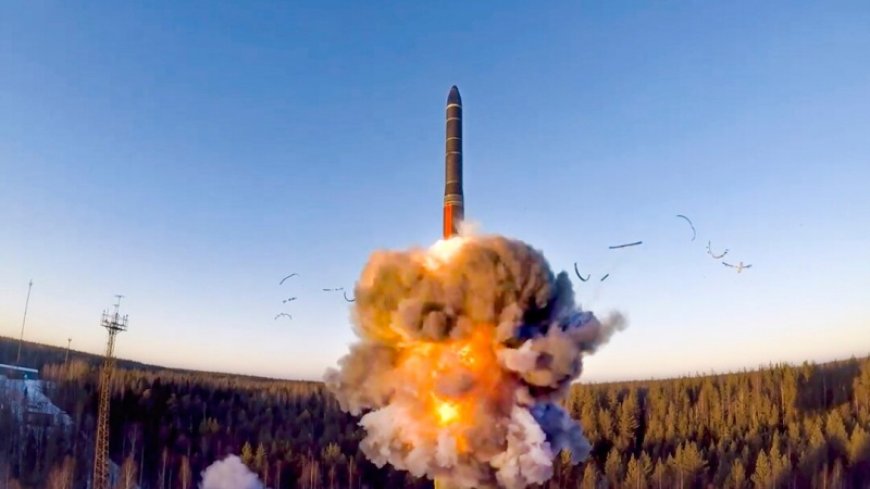Russia supports global nuclear disarmament
Russia's permanent representative to the UN office in Geneva said: Moscow continues to support a program of gradual global nuclear disarmament.

Russia's permanent representative to the UN Disarmament Conference in Geneva, Gennady Gatilov, said: "We reaffirm the obligations set forth in Article 6 of the Treaty on the Non-Proliferation of Nuclear Weapons, which include the goal of achieving peace without nuclear weapons within the framework of general and complete disarmament."
He added: "Nuclear disarmament should be achieved in a phased manner, based on consensus, so that the steps taken in that direction do not harm the security of anyone, but lead to the strengthening of international stability, peace and security for all."
Noting that Moscow is concerned about Washington's plan to deploy intermediate-range nuclear weapons in Germany and the Philippines, he said: "This US plan is cause for concern. It is clear that after its blatant and groundless withdrawal from the INF Treaty in 2019, the United States is making deliberate efforts to fundamentally change the balance of power in its favor and to contain Russia and China."
The Nuclear Non-Proliferation Treaty, which came into force in 1970, stipulated that only five countries—the Soviet Union, the United States, Great Britain, France, and China—could possess nuclear weapons and prohibited others from acquiring them. Later, the five countries pledged not to transfer nuclear weapons to other countries.
In the international arena, geopolitical competition between major states is intensifying, and the risks of a clash of forces between nuclear powers are increasing, Russian Security Council Secretary Sergei Shoigu said in an interview with TASS.
"Against the backdrop of growing conflicts and heightened geopolitical competition in the world, the risks of a power clash between major states are increasing, including with the participation of nuclear powers," Shoigu noted.
According to Shoigu, Western countries have unleashed "ideological and value aggression" against Russia and Belarus and are trying to strike not only with economic sanctions, but also to destabilize the domestic political situation in the countries.
" Attempts to destabilize the internal situation, undermine public morals, and impose an alien neoliberal ideology continue," the Secretary of the Russian Security Council noted.
At the same time, Shoigu emphasized that such behavior by the West negatively affects not only Russia and Belarus, but also the international situation.
" International structures (the World Trade Organization, the World Health Organization, the Organization for the Prohibition of Chemical Weapons, etc.) are being actively devalued, they are increasingly becoming political tools," he noted. "Attempts are being made to undermine international efforts to prevent an arms race in space and the transformation of outer space into a new domain of armed confrontation."
Shoigu noted that these actions are directly aimed at weakening their countries and are dictated by the desire to deprive them of sovereignty and the right to freely choose their own path of development and realize their strategic interests.













































